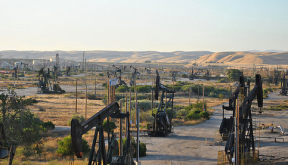Yet what else besides unrest and revolt is to be expected from soaring youth unemployment rates, falling living standards, and still-increasing levels of economic inequality?
By now it is also becoming clearer that the social impacts of contraction serve as a reinforcing feedback to the economy, worsening the debt crisis. A revealing phrase is being used to describe Europe’s financial mess: “the street has taken control.” As people express fears about the future of the euro by taking their money out of banks, the banks weaken and demand more backstops from governments, which have to run even bigger deficits in order to provide bailouts. Further, as people lose faith that government can address economic problems, they stop paying taxes—as is happening in Greece—thus making government even less effective.
Lack of social cohesion is itself a cost to the economy. It’s hard to make a formal economy work at top speed if it is being sabotaged, or if a significant proportion of its output has to go toward keeping people from deserting it in favor of a growing informal economy of black markets, subsistence, and barter.
War is a timeworn solution to economic problems. Surplus young males are kept off the streets; idle manufacturing capacity is engaged; dissent can be ruthlessly swept aside. But in our current global circumstances war is itself becoming increasingly costly, and the US (which is typically at the center of any international conflict du jour) is extremely war-weary. Apart from threats and counter-threats over Iran’s nuclear program, there are few signs yet that strategies of desperation are about to be deployed on a broad scale. But with economic tensions nearing the breaking point geopolitical rivalries could escalate very quickly.
The social consequences of economic contraction are discussed in more detail in my recent essay “The Fight of the Century.”
 The economy needs fuel . . . and more of it all the time
The economy needs fuel . . . and more of it all the timeTo most commentators, the current economic dilemma appears to have emerged solely from problems within the global financial system. But, as I argued inThe End of Growth, there are deeper and—in the long run—much more important factors at work. The economy requires ever-widening streams of resources in order to grow, and many key resources are becoming more expensive to produce. This is particularly true with regard to energy resources, especially oil.
The 2011 [disaster] total was undoubtedly much higher due to the Japanese earthquake, tsunami, and nuclear meltdowns, which by themselves caused roughly $1 trillion in damage
Blowing in the wind
In The End of Growth I argued that the direct financial costs of environmental disasters (principally, droughts and floods, together with large-scale industrial accidents) are rising to the point where they will soon overwhelm economies and make growth impossible. I cited the Haitian earthquake, the Deepwater Horizon catastrophe in the Gulf of Mexico, extensive wildfires in Russia, and deadly floods in Pakistan, all occurring in 2010; the monetary costs to the global economy that year (as figured by the insurance industry) totaled $250 billion. The 2011 total was undoubtedly much higher due to the Japanese earthquake, tsunami, and nuclear meltdowns, which by themselves caused roughly $1 trillion in damage (I have yet to see a final figure that takes into account other catastrophic events last year). More

No comments:
Post a Comment